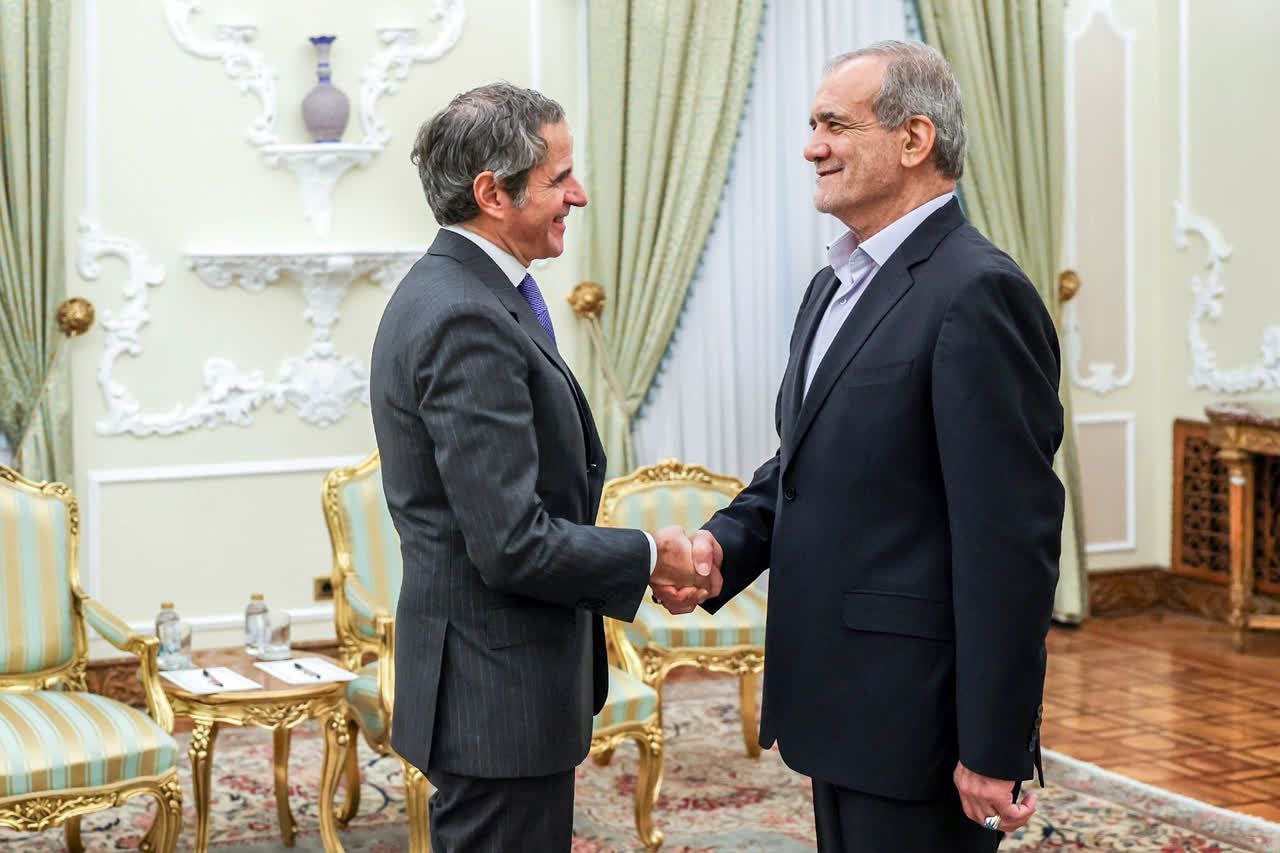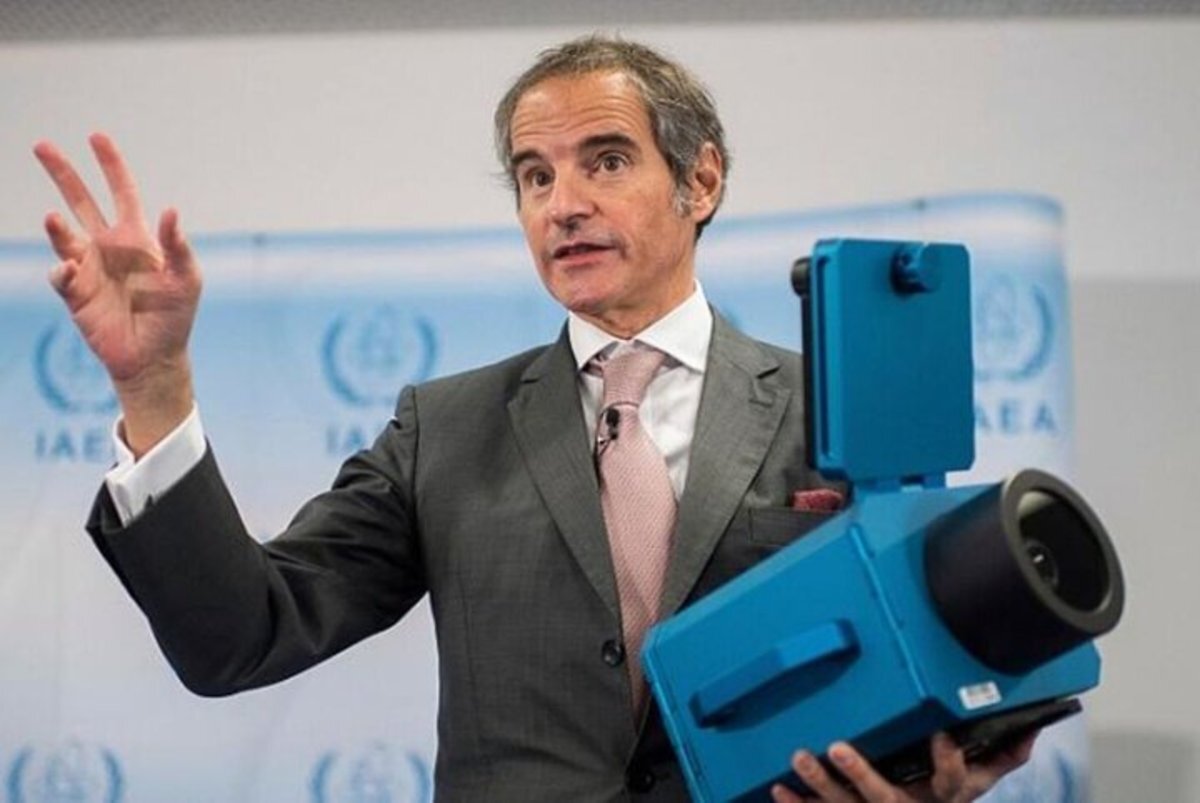Iran Press/ Commentary: In a significant development, Rafael Grossi, the Director General of the International Atomic Energy Agency (IAEA), visited Tehran for crucial discussions with Iranian officials. This visit marked an important milestone in the ongoing collaboration between Iran and the IAEA, underscoring their shared commitment to transparency and peaceful nuclear activities.
European Accusations and Iran’s Nuclear Posturing
The stage for these deliberations was set by mounting allegations from the E3: France, Germany, and the UK. These nations have accused Iran of accelerating its nuclear activities, citing enriched uranium levels reaching 60% purity. The claim, while technically accurate, omits crucial context: Iran has consistently framed its advancements as reversible steps taken in response to breaches of the Joint Comprehensive Plan of Action (JCPOA) by other parties, particularly the U.S., whose 2018 withdrawal triggered cascading consequences.

Iran’s Gestures of Goodwill
Grossi’s November 14 visit marked a notable shift in tone. Iran extended significant gestures of goodwill, including agreements aimed at restoring IAEA inspectors’ access to key nuclear facilities. Foreign Minister Abbas Araghchi’s remarks underscored Tehran’s willingness to resolve disputes through dialogue, provided discussions occur free from coercion. Iran reaffirmed its commitment to the Non-Proliferation Treaty (NPT) and stressed that it seeks peaceful nuclear capabilities, as it has long maintained.

For a nation under immense economic strain from years of sanctions, this outreach represents a strategic pivot, emphasizing engagement over escalation. Yet, Tehran’s concessions have come with clear expectations of reciprocity—expectations that, so far, Western powers have failed to meet.

Western Responses: Destructive or Constructive?
Despite Iran’s overtures, the response from the E3 and their allies has often leaned toward antagonism. In recent months, they have pursued punitive measures, including calls for fresh resolutions at the IAEA. Such moves undermine the trust essential for effective diplomacy and risk derailing the progress Grossi’s visit was intended to foster.
The E3’s insistence on exerting pressure reflects a broader geopolitical dynamic. It aligns with hardline stances aimed at isolating Tehran, often dismissing Iran’s legitimate grievances about the JCPOA’s unraveling. Since the US withdrawal, Iran’s incremental departure from JCPOA terms has been framed by Western powers as unilateral defiance, ignoring the phased, reversible nature of its actions and the IAEA’s continuous monitoring of these activities.

The Cost of Escalation
Any resolution against Iran at Wednesday’s IAEA meeting would carry profound consequences. Such a step risks reigniting regional tensions, diminishing the agency’s credibility as an impartial arbiter, and reinforcing Iran’s distrust of Western intentions. For Tehran, it would signal that diplomacy—despite its inherent compromises—remains unreciprocated. For the global community, it would exacerbate a crisis at the intersection of non-proliferation and geopolitical rivalry. Moreover, this escalation could obstruct future efforts to restore JCPOA compliance. The delicate balance struck during Grossi’s visit, aimed at incremental progress and confidence-building, would be jeopardized by such a demarché.

Conclusion: A Time for Pragmatism
As the IAEA deliberates, the global community faces a choice: reinforce the potential for dialogue or inflame tensions with punitive measures. The stakes extend beyond the immediate crisis, touching on the broader principles of multilateralism and trust in international frameworks. Whatever the E3 and IAEA decide, one fact stands as a sobering reminder, articulated in the 2024 U.S. Annual Threat Assessment*: “Iran is not currently undertaking the key nuclear weapons-development activities necessary to produce a testable nuclear device.
Since 2020, however, Tehran has stated that it is no longer constrained by any JCPOA limits, and Iran has greatly expanded its nuclear program, reduced IAEA monitoring, and undertaken activities that better position it to produce a nuclear device if it chooses to do so.”*
The road ahead demands pragmatism, mutual respect, and a recognition of shared stakes in preventing further deterioration of trust. A collaborative demarché could pave the way for de-escalation. Anything less risks an escalation none can afford
Ashkan Salehian

